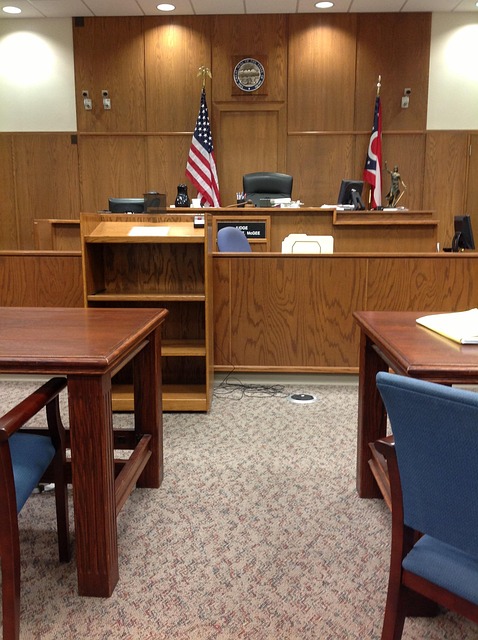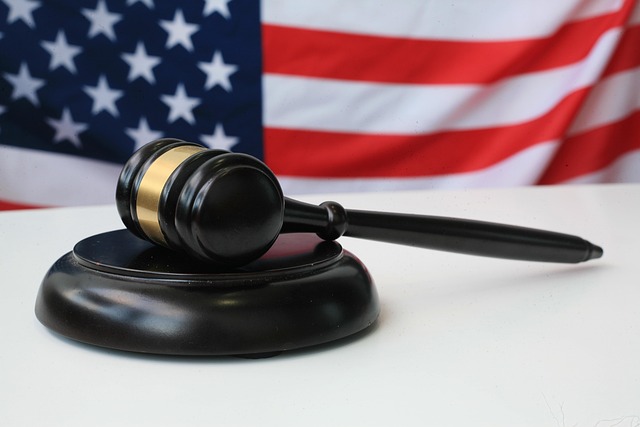Public corruption charges stem from allegations of illicit behavior by public figures, including bribery and misuse of funds, damaging public trust. White-collar crime, encompassing money laundering and fraud, is addressed through Sentencing Guidelines that ensure fairness and consistency in sentencing. These guidelines, structured around offense severity, defendant role, and criminal history, are crucial in complex cases involving varied financial transactions. Legal battles involve federal and state laws like RICO, with attorneys defending clients' rights while prosecutors argue based on guideline factors. Preventive measures include transparency, financial disclosure systems, ethical guidelines, and restorative justice approaches to deter corruption and ensure fair legal outcomes.
“Public corruption charges represent a significant threat to societal integrity, involving abuse of power and misappropriation within government entities. This article delves into the intricate world of understanding public corruption, exploring its defining characteristics and profound impact on communities. We analyze the legal framework governing white-collar crime through federal and state laws, focusing on sentencing guidelines that shape prosecution strategies. Additionally, it examines defenses available to accused individuals and offers insights into preventive measures aimed at enhancing transparency and accountability in public offices.”
- Understanding Public Corruption Charges: Definition and Impact
- Legal Framework: Federal and State Laws Governing White Collar Crime
- Sentencing Factors: Guidelines for Prosecutors and Judges
- Mitigating Circumstances: Defenses and Strategies for Accused Individuals
- Preventive Measures: Enhancing Transparency and Accountability
Understanding Public Corruption Charges: Definition and Impact
Public Corruption Charges refer to allegations of illicit behavior by individuals in positions of public trust, who abuse their power for personal gain. This can include bribery, fraud, and abuse of public funds. The impact of such charges is significant, eroding public confidence in government and institutions. It disrupts the rule of law and undermines democratic principles.
Understanding these charges involves grasping white collar crime, which encompasses a range of non-violent financial crimes, including money laundering, fraud, and tax evasion. The Sentencing Guidelines for White Collar Crime play a crucial role across the country, providing a framework that considers the severity of the offense, the defendant’s role, and their cooperation during all stages of the investigative and enforcement process. This approach aims to ensure fairness and consistency in sentencing, while also deterring potential future misconduct in white collar and economic crimes.
Legal Framework: Federal and State Laws Governing White Collar Crime
The legal framework governing public corruption and white-collar crime is a complex web of federal and state laws designed to address illicit activities in both the private and public sectors. At the federal level, the U.S. has several key statutes targeting such offenses, including the Racketeer Influenced and Corrupt Organizations Act (RICO) and various provisions under the Criminal Code addressing bribery, fraud, and money laundering. These laws are accompanied by Sentencing Guidelines for White Collar Crime, which provide a structured approach to punishment, considering factors like the nature and extent of the crime, the defendant’s role, and their criminal history.
State laws also play a significant role in prosecuting white-collar crimes, offering additional tools and protections tailored to local needs. Achieving extraordinary results in these cases often hinges on navigating this intricate legal landscape, understanding the specific charges applicable to each situation, and crafting effective defenses. For his clients, skilled attorneys can guide them through the process, aiming to avoid indictment where possible while ensuring due process rights are respected throughout the legal proceedings.
Sentencing Factors: Guidelines for Prosecutors and Judges
When prosecuting public corruption cases, sentencing guidelines play a pivotal role in ensuring fairness and consistency. These guidelines are particularly crucial for white-collar crimes, where the complexity of financial transactions and potential impact on society can vary widely. Prosecutors and judges alike must consider various factors to determine an appropriate sentence that reflects the severity of the offense.
The Sentencing Guidelines for White Collar Crime typically account for elements such as the scale of the fraud, the level of planning involved, and any mitigating or aggravating circumstances. For instance, a prosecutor might emphasize the financial loss incurred by victims or the abuse of public trust in advocating for a stricter sentence. Judges, on the other hand, evaluate these factors to balance punishment with potential rehabilitation, especially when dealing with individuals from the philanthropic and political communities. This balanced approach ensures that sentences are proportional to the crime while allowing for flexibility in considering the unique circumstances of each case and the general criminal defense strategies employed.
Mitigating Circumstances: Defenses and Strategies for Accused Individuals
When facing public corruption charges, accused individuals often explore various defenses and strategies to mitigate their circumstances. These efforts are crucial in navigating the complex legal landscape surrounding white-collar crimes. One common approach is to challenge the evidence presented by the prosecution, scrutinizing its validity and reliability. This may involve examining the sources of information, questioning witness testimonies, and highlighting any inconsistencies or gaps in the proof.
Additionally, those accused can leverage sentencing guidelines for white-collar crime, which offer a range of potential outcomes. By presenting mitigating factors, such as cooperation with authorities, accepting responsibility, or lack of prior criminal history, defendants may seek leniency in their sentences. These strategies, combined with a robust and winning challenging defense, could lead to more favorable verdicts across the country, ensuring that justice is served while also considering the unique circumstances of each case.
Preventive Measures: Enhancing Transparency and Accountability
Preventive measures play a crucial role in combating public corruption charges. Enhancing transparency and accountability are key strategies to deter potential wrongdoers. Implementing robust systems for financial disclosure, strict adherence to ethical guidelines, and open data policies can act as powerful deterrents. These measures ensure that government officials and corporate entities operate under the watchful eye of the public and legal authorities, reducing opportunities for illicit activities.
Across the country, sentencing guidelines for white-collar crime have evolved to include not only punitive measures but also restorative justice approaches. Such guidelines encourage cooperation from defendants, especially in high-stakes cases, which can lead to reduced sentences. This collaborative approach between prosecutors and white collar defense attorneys has proven effective in promoting accountability while also ensuring fair legal outcomes.
Public corruption charges, often tied to white-collar crime, significantly shape our societal landscape. By understanding these charges, their legal underpinnings, and sentencing guidelines, we can foster enhanced transparency and accountability. The comprehensive legal framework, including federal and state laws, ensures that those who engage in public corruption face consequences. Mitigating circumstances offer defenses for accused individuals, but proactive measures like strengthening transparency are game-changers in preventing such offenses. Ultimately, the Sentencing Guidelines for White Collar Crime play a crucial role in shaping justice, emphasizing accountability while allowing for fairness in individual cases.






